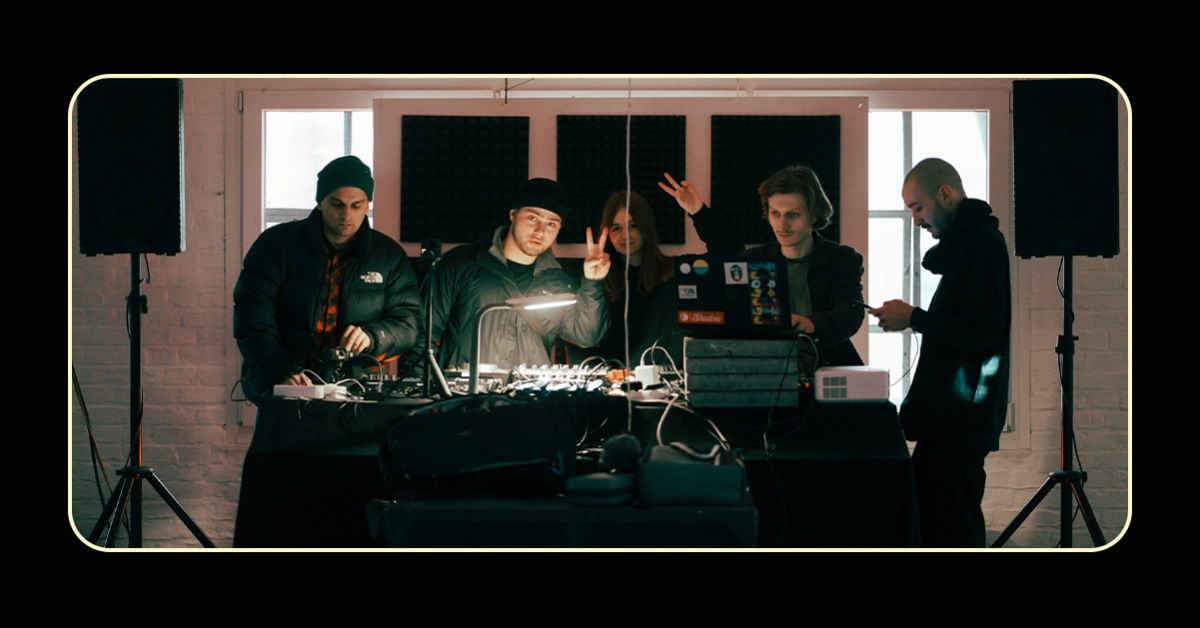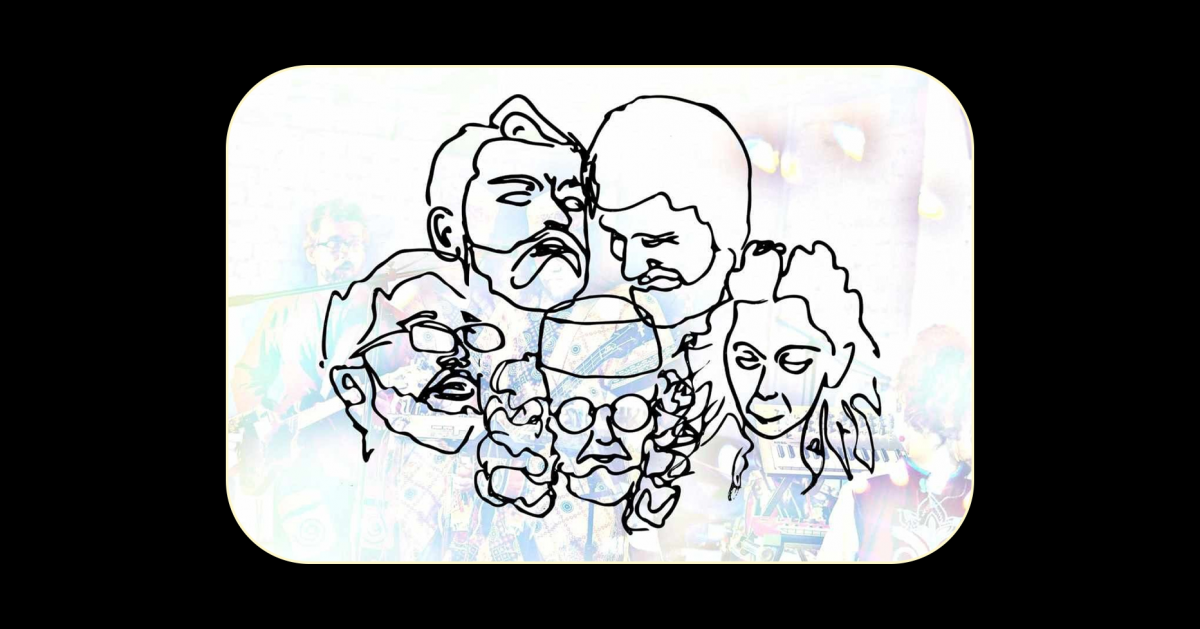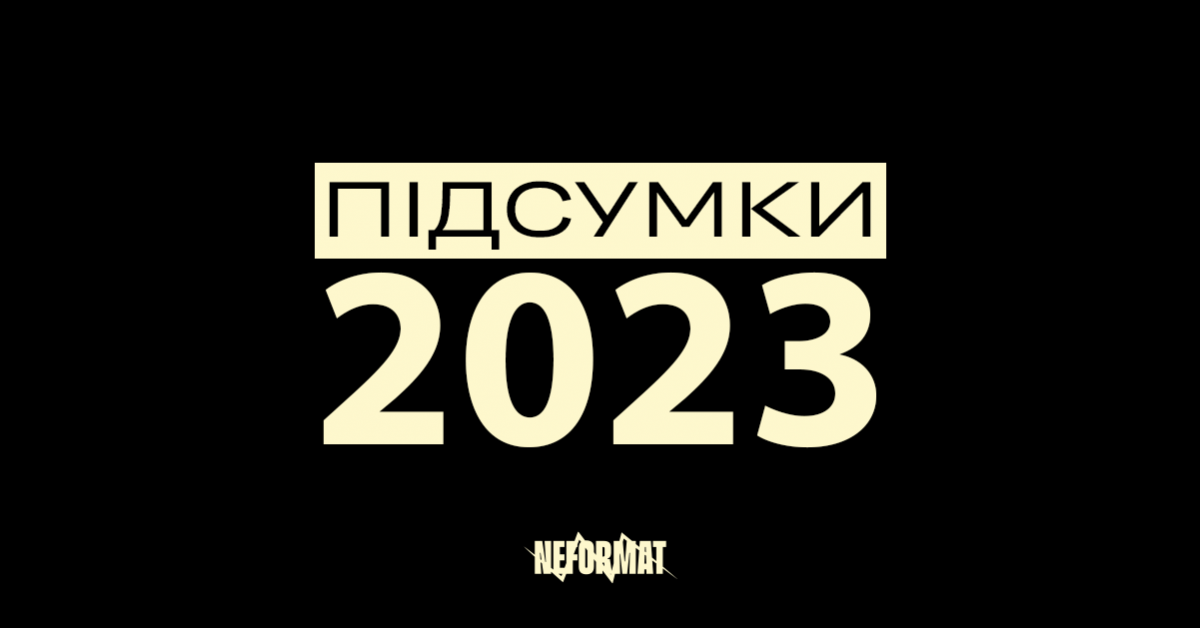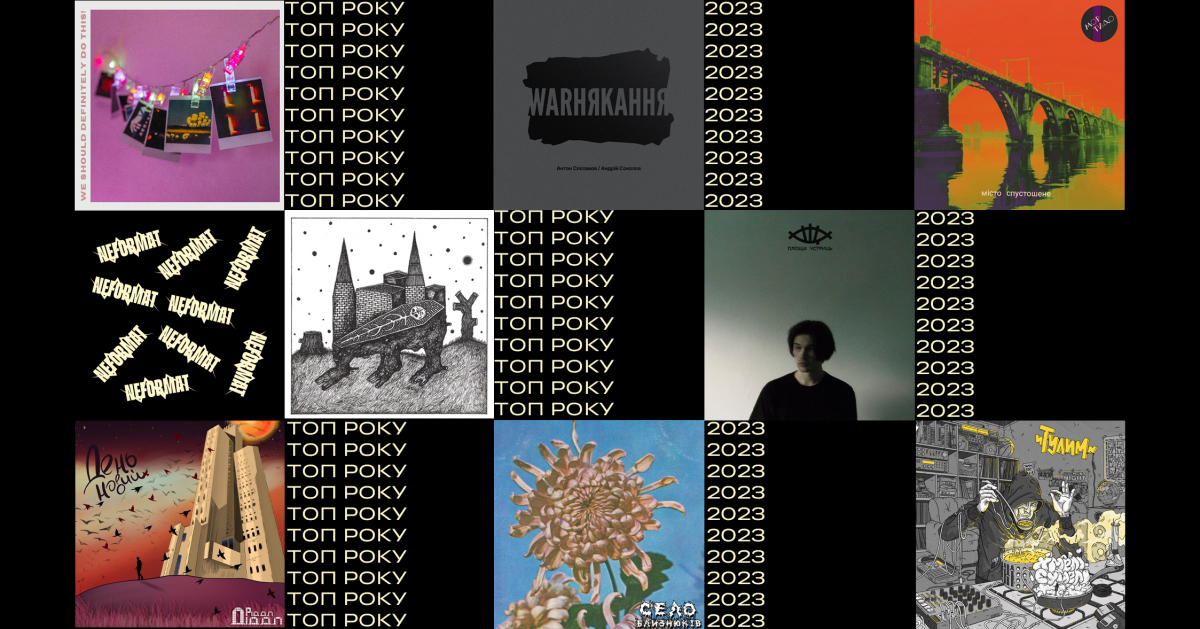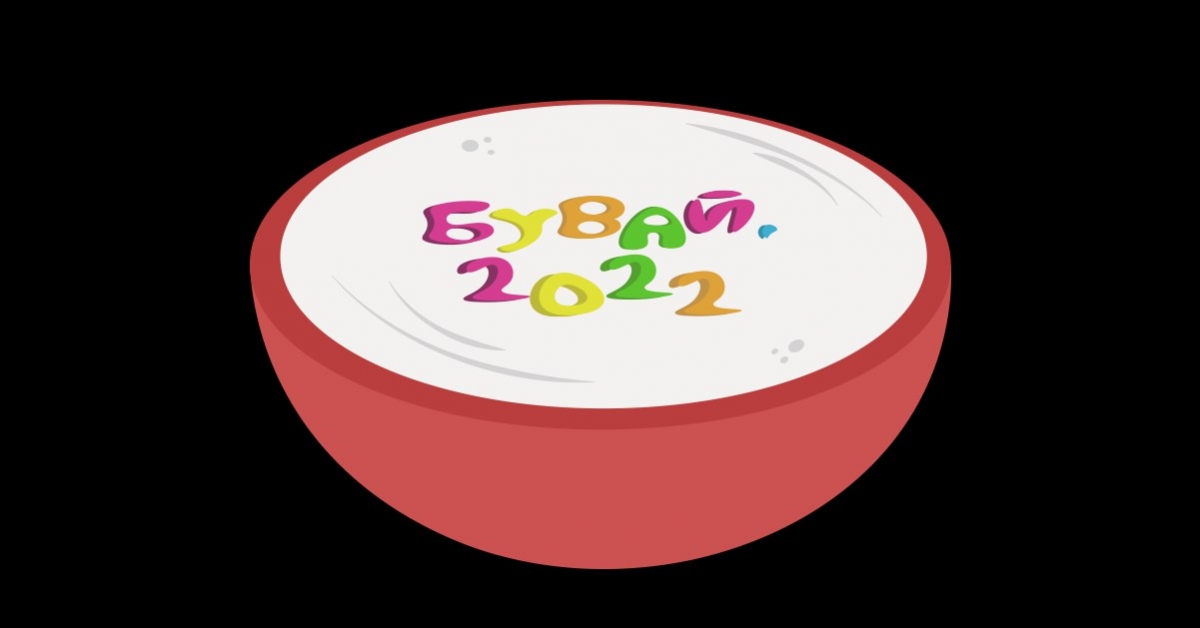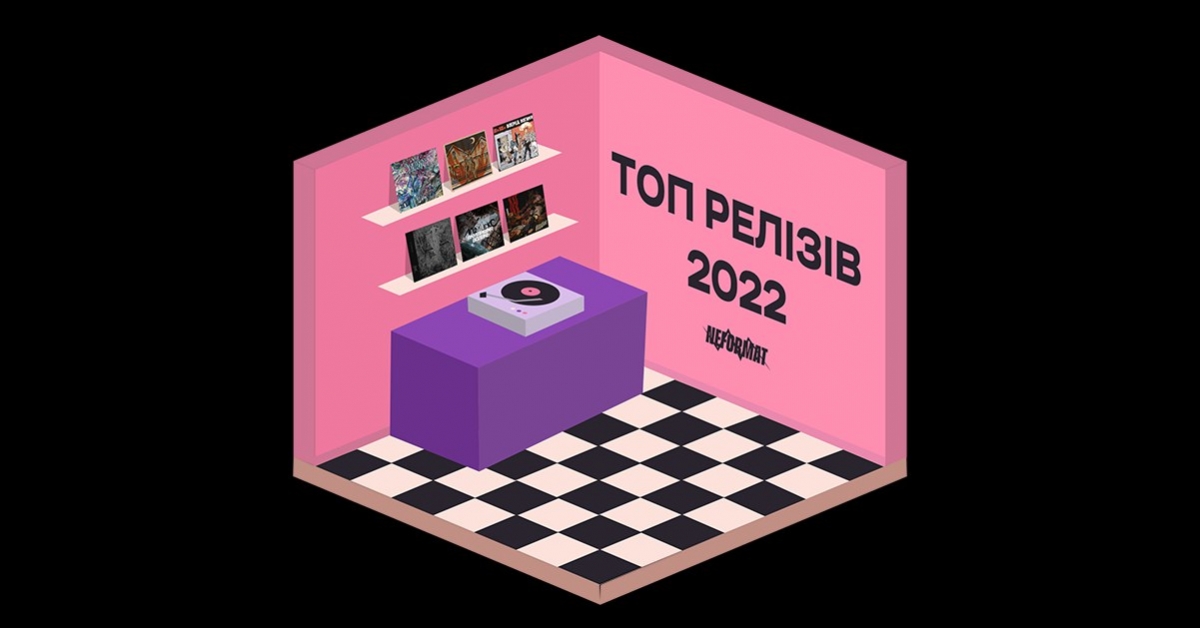10 significant Ukrainian dark folk artists
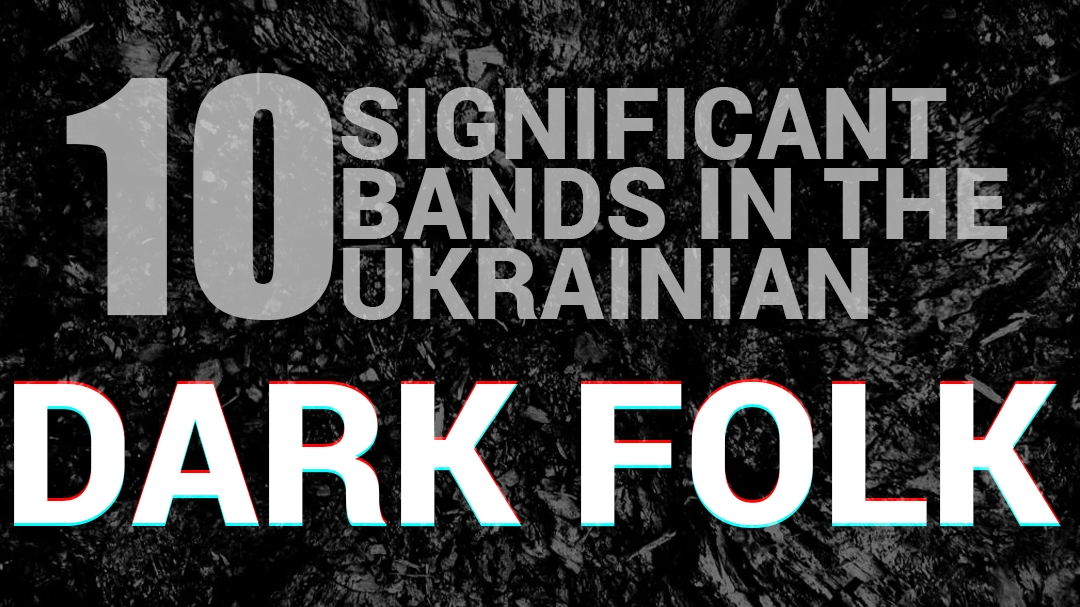
Unlike its British counterpart, Ukrainian dark folk scene lasted not for too long, haven`t reached world-wide recognition and, of course, emerged a bit later. We can divide its development into three waves, each of which, oddly enough was 10 years long.
It should be noted that this division is not a mere formality. Dark folk music together with its derivatives from 90s was different from the stuff of 00s and so on. That is why in this albums selection I tried to accommodate different representatives of the genre, that were active in different periods of time. It wasn`t hard to do due to the fact that Ukrainian dark folk bands are so few in number.
VIY — "Viy" (Вій — Вій)
Dmytro Dobry-Vechir (Дмитро Добрий-Вечір) leaves Banita Bayda (Баніта Банда) to form Viy (Вій) with Ihor Lemeshko (Ігор Лемешко) and Oleh Kozlov (Олег Козлов) in 1991. Original members of Viy were: Dmytro Dobry-Vechir (bass guitar, vocals), Ihor Lemeshko (guitar), Oleh Kozlov (guitar), Yuri Mezenchuk (Юрій Мезенчук) (drums), Ruslan Meleshchenko (Руслан Мелещенко) (percussion) and Vyacheslav Mykluho (В’ячеслав Миклухо) (cello).
Eponymous album was issued in summer of 1993 on Polish label Koka Records. Although I don`t like to use that word, but in this case, I think it`s justifiable – "Viy" album is atmospheric. It is an amazing expression of Ukrainian demonology in music and lyrics. Acoustic and electric folk played on ethnical musical instruments as well is smoothly blended with ambient pieces and doomy instrumentals here.
These songs tell us the stories about Cossacks, witches, tragic countryside love stories and other familiar Ukrainian literary tropes. It is crucial that you close your eyes while listening to Viy. If you do so, you will experience some psychedelic visions of mystic Ukrainian soil.
Vezha Hmar — "Ritual" (Вежа Хмар — Ритуал)
If Ukrainian dark folk in whole appears to be somewhat outsider genre, then Ukrainian ritual-folk is the epitome of being an outsider. Kyiv-based all-female duo Vezha Hmar (Вежа Хмар) would make you dive to the netherworld long before Russian band Staruha Mha (Старуха Мха) even emerged. Vezha Hmar is ambient, folk and drone music, blended in something more whole, rich and too hypnotic, that you can hardly perceive from the first listening.
Oleksandra Voloh (Олександра Волох) and Valentyna Sizevich (Валентина Сізевич) issued their album "Ritual" ("Ритуал") in 1998th on Mariupol-based label Bloodhead Production. This marked their journey into infraspace on their quest for gavvahi seeking with later absorbing of it and running away from witzraors and maintaining shrastr by help of guitars, keys, tambourine and angelic vocals.
Olena Lukina (Олена Лукіна) contributed to this album recording. After some time, Oleksiy Snihur (Олексій Снігур) has joined the band. This was a temporary line-up, which had lasted for one year. The final line-up was formed when Ihor Maluha (Ігор Макуха) joined the original duo of Valentina and Oleksandra.
"Ritual" remains band`s magnum opus, as for me, and the deepest of their works. The endless well with no sense of time. Of course, each of their albums is unique for its individual reason. And there is no point to objectively compare them, but "Ritual" simply knocks you down. Compositions here are divided into three subgroups: "Birds", "People" and "Spirits". These three are different sigils, designed for different purposes. All tracks are made of hypersigil, reflecting the worldview of the artists. It feels like a high voltage currently running through the bare nerves.
Vorozhden` — Vorozhden` (Ворождень — Ворождень)
Band named Vorozhden` was formed 1998, a year after Vezha Hmar was. It is founded by members of Dead Faith, Volodymy Kuchinsky (Володимир Кучинський) and Victor Mahomet (Віктор Магомет). Later Ludmila Minina (Людмила Мініна) (violin) has joined the collective and also Oleksij Andreev (Олексій Андрєєв) (keys) and Oleksandr Naumenko (Олександр Науменко) (guitar). With this line-up they participated in "Chervona Ruta’99" festival ("Червона рута'99") and "Rock-acoustics" festival of 2000 ("Рок-акустика'2000").
This line-up was the best in their history and is responsible for creating the eponymous album in 2000. Reasonably the band called its style "dark psychedelic electronic rock". Though, I`d rather call them "post-industrial". Nevertheless, specifically Vorozhden` are the ones you can boldly label as the dark folk representatives in classic meaning of subgenre, both by music and lyrics. Their compositions include minimalistic guitar, but words just keep wandering over the dark fields of our moody Motherland. These words are running through the forests where monsters and mystic creatures live and go straight into the ears of a lonely molfar, Ukrainain witch doctor. Chtonic beauty as it is.
Nekraina – Apocalamity (Nекраїна — Апокаліцтва)
Project called Nекраїна was the creation of Odessa resident Georgy Charsky (Георгій Чарський) and is widely renowned among Ukrainian dark folk listeners. Nекраїна became popular for its remakes of Death in June songs. Charsky not only did a translation of lyrics to Ukrainian, but also imbued them with Ukrainian ethnic themes.
Nekraina started its own original way with the "Apocalamity" (Апокаліцтва) album in 2002. It includes 9 tracks which unite ambient, industrial and Lo-Fi. Many will agree that this work is much stronger than messing with Di6. Firstly, it has cosmic-psychotic music and playful lyrics about Kali-yuga and cats (the things we love so much). Secondly, it is a view on the dark folk from a local point without attachment to the West. Also, it's great that Charsky worked with Yuri Shelekhov (Юрій Шелехов), Andriy Chuprun (Андрій Чупрун) and other invited musicians. Each one of them contributed some of their unique style to make this work a bit more diverse.
"Apocalamity" came out on Quasi Pop Records, which was set to release Ukrainian experimental music and subsequently has gone into oblivion.
The Litz — Aquatic Pop
It would be a shame not to mention the Lviv-based band The Litz, founded by Marina "Black Mary" Shcherbakova (Марія Щербакова) and Dmitry "Danner" Khodyko (Дмитро Ходико). During its entire existence, the band recorded only one full-length album named "Aquatic Pop" in 2003. It was created without Marina, as she was gone singing metal at the Ambivalence. She was subsequently replaced by Ksenia Ryhalska. After this, Maksym Kerner joined the team.
Dmytro Khodyko was the initiator of the Ukrainian dark folk compilation creation called "Wormwood Blooms" (Полин Квітне), which flooded all possible forums, featured in a long list of reviews and, of course, can be easily found in Youtube recommendations.
But "Aquatic Pop" is the entirely different story. I personally didn`t manage to find it in the entirety of the Internet. Maybe someone else would be luckier than me. At the same time, due to "Wormwood Blooms" you can hear fantastically performed songs like "Eraser" (Стирач) and "Body Puzzle". If Casa Ukrania (mentioned later) is a journey through smoky Kherson roads with a cigarette in your mouth (Ukrainian Southern Gothic), The Litz band is a journey through the metaphysical planes of Baudelaire's poems. Very soft, very mysterious and insanely melodic.
Sorrow Expert — When You`re Twenty (Sorrow Expert — Коли тобі двадцять)
Here is the description of Sorrow Expert that once was placed on band`s website:
"Sorrow Expert was formed in 1977. Its only member died in 1980. The band of the same name was formed in 1985. It had lasted for 19 years, but in 2004 its only member died again. Sorrow Expert project currently holds a cult status and participates in creative activities: doesn`t play gigs, doesn`t release albums and is almost unknown to anyone. In his spare time, the only member of Sorrow Expert would drink alcohol and masturbate."
Of course, no one died or masturbated. Odessa-based project Sorrow Expert was born in 2004. Some listeners of "Prosto-radio" could hear this cheerful and simultaneously suicidal military-pop thanks to the "Atmosphere" program. Their only album "When You're Twenty" was released in 2007 on Cardiowave label.
Sure, it is not quite usual dark folk, but the aesthetics and ideology are preserved. As for music, it's a straight-beat music with samples from Russian Show "Street of Broken Lanterns" (Улицы Разбитых Фонарей) (maybe I'm wrong, but the sounds are very familiar). Anyway, it`s always fun to hear a person uttering such nonsense with a serious face. However, these lyrics sound nice and fitting while dissolving in the general music flow.
Casa Ukrania — Ouroboros
This one is dedicated to all fans of The Moon Lay Hidden Beneath a Cloud. Natalia Hrytsenko and Leonid Zhdanov have founded Casa Ukrania in 2014, and it was aimed to merge electronics and folk. You may roll your eyes when hear about such a combination: we`ve already seen so many attempts of this and only a few of them were good.
Anyway, their second LP "Ouroboros" which was released in 2015th could make you raise your eyebrows and nod your head in approval. I mean, it turned out terrific. Here you can feel medieval, neoclassical and folk motifs, some dark country-styled guitar, and even some occasional New Wave. And the most important is pleasant emerald voice of Natalia, which is somewhat detached, but fitting to overall picture.
Abendland — Abendland
Dark folk is known for working with different styles without losing its signature tone. You can even call it a postmodern venture, which welcomed eclecticism in every possible way. And well, sometimes it seems that the more radical experiments are, the more interesting the final product gets.
Abendland is a mixture of different genres from post-rock to trip-hop. At the same time, the artists themselves have noted on social media that they play ambient and dark folk. Personally, I wouldn`t like to pigeonhole them.
You can read such synopsis on their bandcamp page: "Abendland is real Europe, which sometimes can be hardly found in the profane world, but which still remains in our spirit life, in our hearts and our dreams, the flavor and the sound of which always comes to life in the circle of Eternal return for those who have not lost the ability to feel; it is an invincible youth that always strives towards the ideal."
The first thing you notice here is Nietzschean understanding of the West ("Abendland" is German word for "West"). So you all are ready to hear some martial industrial with dictators’ speeches, but what you get instead of it is a set of psychedelic vibrations with some heavy guitar riffs.
This became possible because of Max Solodovnyk (Макс Солодовник) was joined by Serhiy Yagoda (Сергій Ягода) from Gamardah Fungus in 2014th, who also was the composer.
Their debut full-length album was released in 2016. At that point, Yagoda have already left the band, and his place was taken by Volodymyr Kuchynsky from the Vorozhden band.
Wiseword.Nidaros — Battle Songs of Orthodoxia (Wiseword.Nidaros — Бойові Пісні Ортодоксії)
If Death in June music is about actual, Current 93 narrates about things that matter the most, then Sol Invictus sings about the past. Sergey Gololobov from Nikolaev became our Tony Wakeford. A listener without some minimum comprehension of history probably won`t understand his shtick and may think he`s just nuts.
However, the songs of "Battle Songs of Orthodoxy", that was issued in 2017 tell about the glorious times when hetmans showed their enemies what is what, uprisings occurred in Koliivshchyna, and Olevsk was the capital of an unrecognized republic.
"Отець Михайло править панахиду.
Добре, дітки, били комуністів», –
Задоволено й водночас гірко,
Згадуючи смерті побратимів,
Що в бою з більшовиками впали,
Мовив хлопцям Бульба-Боровець."
_____________
"Father Mykhailo is holding a memorial service.
Well, my children, we fought communists" -
Bulba-Borovets said to the boys,
Satisfied and bitter at the same time,
Remembering deaths of his brothers,
That fell in the battle with Bolsheviks."
Moreover, in these ten songs the author manages to travel to many different countries and temporal planes. He doesn`t dedicate his work exclusively to Ukraine, which makes his works in certain way international, while still maintaining the aesthetic and nationalist flavor of dark folk.
Another major asset here is that this artist doesn`t dwell on typical dark folk techniques. As if this music is so familiar and well-heard, but some interesting hooks still slip through and you instantly cling to them.
Zamkova Tin` — From medieval motifs (Замкова тінь — Із середньовічних мотивів)
I really like the music of Kyiv-based medieval-ambient band Little Beasts of Sufina (Маленькі Звірята Суфіни). For a long time I was looking for something similar in Ukraine and one day I found this band from Lviv called Zamkova Tin`. Six people, namely Marichka Koshelinska (Марічка Кошелінська), Zoryana Leshchyshyn (Зоряна Лещишин), Taras Fedorchak (Тарас Федорчак), Andriy Lesiv (Андрій Лесів), Viktor Martyniuk (Віктор Мартинюк) and Taras Terletsky (Тарас Терлецький), create real magic with the help of medieval string and wind instruments, as well as male and female voices.
Zamkova Tin` (which means "Shadow of the Castle" in Ukrainian) is the music of sad minstrels. When you listen to it, the marginalia of ancient treatises, defrocked monks in strict robes and knights in shiny armor appear in front of your eyes.
The songs of Zamkova Tin` band were not included in a full-fledged album, but their compilation entitled Cycle "From Medieval Motives" can be listened to on YouTube.
Well, I wouldn`t like to end this review by a negative note, but it looks like right now dark folk is reviving in our country, especially after the revolution. All these are bright but very short bursts that can be quickly forgotten. This genre of music has never been too popular anywhere, but in our country, it is the Holy Grail which can turn into dust at any time. So, go on and appreciate what we got, and feel free to contribute to Ukrainian dark folk.
This article is part of a series of materials on the development of various underground musical genres in Ukraine. Early in the series:
https://www.neformat.com.ua/rubrika/10-znakovih-gurtiv
Cover — Anastasia Inri


